Amudhan’s Craft, Concerns and Challenges
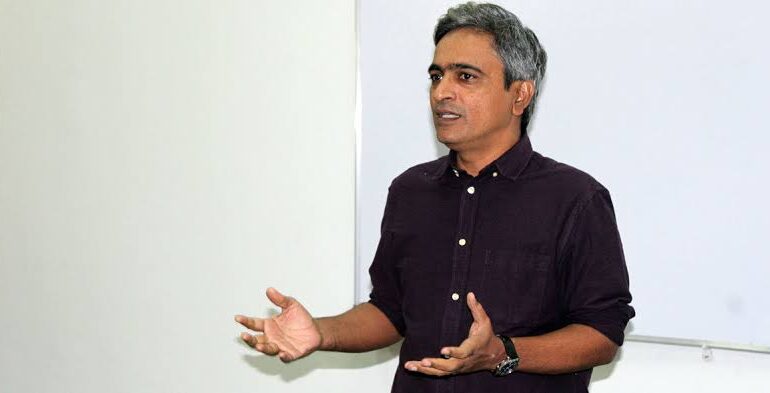
Prolific documentary filmmaker R.P Amudhan’s body of work is unique and striking, especially in the manner in which his creations address issues and concerns of the marginalised sections of society. He is known as a media activist too. Hailing from Madurai, in Tamil Nadu, he founded the Marupakkam Media Activist Group (MMAG) in in his home district. The MMAG produces documentaries, screens films, and conducts workshops. He has over 20 documentaries to his credit. His films primarily focus on caste and labour issues. In this Interview with poet and writer Rashida Nasriya, filmmaker Amudhan RP discusses his craft, concerns and challenges.
Rashidha Nasriya: What do you consider as the most significant challenge you have faced during the making of your documentaries?
Amudhan RP: The biggest challenges I have faced in documenting the kind of social issues I have chosen to film are threefold. First, identifying a crucial topic which requires in-depth understanding and sufficient data to substantiate the narrative. Once I have a clear understanding of the topic, I would conduct thorough research and convince people, that is the characters in my film and their kith and kin. This has been my approach from my very first film, Leelavathi, a documentary on a Communist Party of India (Marxist) – CPIM- cadre killed in Madurai in 1997. I was relatively young at that time and the task of persuading her family and the district CPIM committee took a lot of effort. I finally did get their consent. It was a difficult task to get their trust.
The second challenge – although a joyful one – is researching and gathering credible information, while the third is securing funding. As a solo filmmaker, I have learned to be self-sufficient. But still finding funds is a challenge. Any filmmaker would go through these challenges in varying degrees.

Nasriya: Did your activist background influence your decision to become a filmmaker?
Amudhan: During my MA studies, I attended a workshop in Madurai organised by Center for Development of Instructional Technology (CENDIT), an organisation based in New Delhi. Here, I was exposed to several powerful documentary films. This experience opened my eyes to the significance of political documentaries. I was introduced to the concept of using film as a tool for social change, and I immediately knew I wanted to become a documentary filmmaker and an activist. This workshop sparked my passion for creating and screening films that inspire critical thinking and trigger meaningful conversations. It was a turning point that led me to merge my interests in social activism and filmmaking, ultimately shaping my identity as an activist-filmmaker. Activism and filmmaking are deeply intertwined for me – they’re two sides of the same coin. My filmmaking is an extension of my activism, and vice versa; the two are inseparable.
Nasriya: Your film “My Caste” examines the intersection of caste, hegemony, and consensus in Indian society. What has driven your focus on caste in your activism and filmmaking?
Amudhan: I wanted to take on the Caste issue from the perpetuator point of view rather than from the victim’s or survivor’s point of view. I wanted to get into the minds of the people who either follow or negotiate or negate caste in their lives. I wanted to know what happens in people’s minds when they deal with caste matters. That’s why I made the film ‘My Caste’ ‘recording the views of various people on caste related questions.
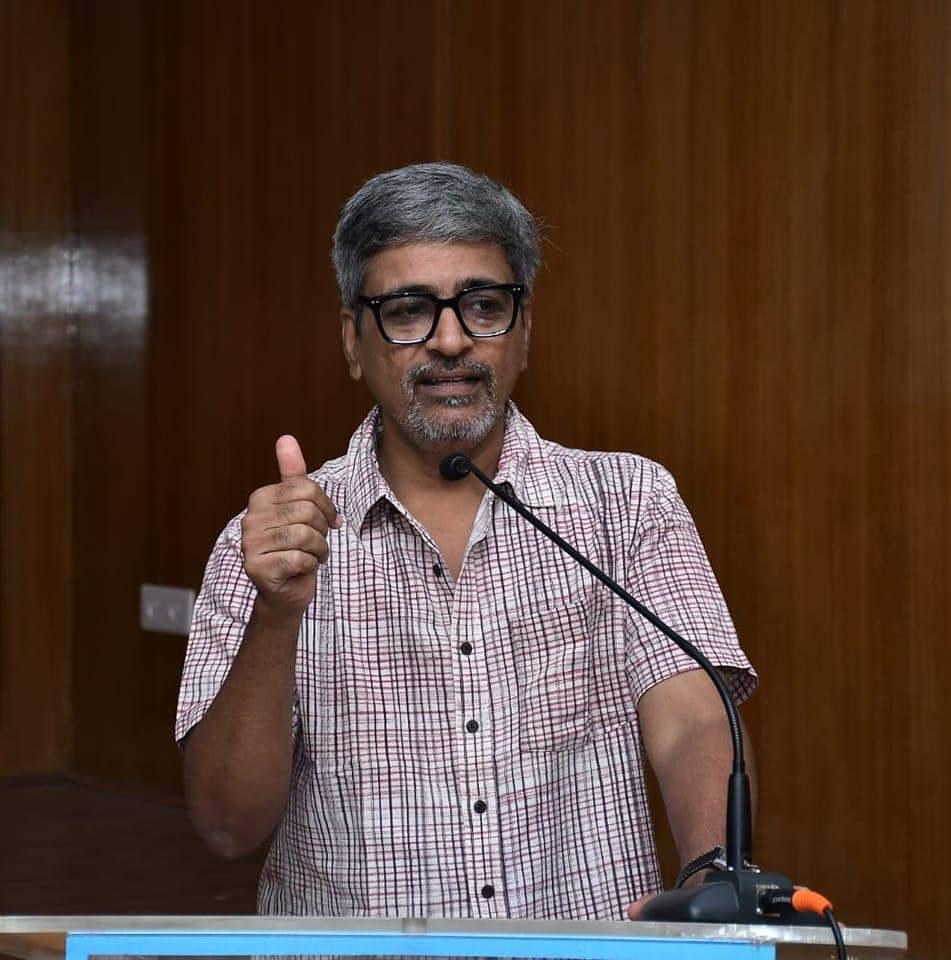
Nasriya: Can you give some details on how you investigated labour exploitation in Tirupur’s garment industry for your documentary “Dollar City”?
Amudhan: Many of my films focus on labour issues, with a considerable number exploring labour practices. For my trilogy on hegemony and consensus, I chose Tirupur as a case study. This city exemplifies how consensus is manufactured to prioritise the industry’s interests.
In Tiruppur, a tacit understanding exists among industries, trade unions, workers, NGOs, and political parties to protect the industry at all costs. The prevailing narrative is: ‘Without the industry, we cannot survive.’ This consensus leads to widespread compromise and adjustment, perpetuating the exploitation.

I want to capture this complex dynamic in my film, highlighting how Tiruppur’s industry-centric consensus affects labor rights and social justice.
Nasriya: How did you approach exploring the complex and sensitive topic of manual scavenging in your film “Pee (Shit)”?
Amudhan: I wanted to make a Tamil version of Lesser Humans – a documentary on Manual Scavenging in Gujarat by Stalin K. Although I wanted to make a similar comprehensive film about Tamilnadu, my encounter with Mariamma, a sanitary worker in Madurai convinced me to make a short documentary which practically covers every aspect of the work.
I realised a shorter format could powerfully convey the urgency of this issue, making a compelling argument against manual scavenging. This inspired me to create the film titled ‘Pee’ (Shit) [Watch Below], highlighting the harsh realities of manual scavenging.
Nasriya: What inspired you to create a documentary about Mercury pollution in Kodaikanal?
Amudhan: The film ‘Mercury in the Mist’ was initiated by workers from the Kodaikanal thermometer factory, who had been fighting against the company’s harmful practices. They sought my help to create a documentary supporting their cause, highlighting the devastating health effects of mercury exposure and their ongoing court battles. It was partially funded by the workers and their well wishers like Nityanand Jayaraman and others.
Nasriya: Do you think the documentary can contribute to the border understanding of the challenges facing Indian democracy?
Amudhan: Documentary watching is, in my opinion, one of the most engaging and intellectually stimulating activities. It offers a unique blend of education, art, and social awareness, empowering individuals to become responsible citizens. By watching documentaries, we gain perspectives on the world around us, exercising our right to informed decision-making and participatory governance. Through my screenings, I aim to create opportunities for social and political education, fostering a culture of critical thinking and civic engagement. Documentaries provide a valuable platform for raising awareness on critical issues, making meaningful conversations and inspiring social change.
Nasriya: How crucial is creative freedom in documentary filmmaking for fostering critical thinking and public debate?
Amudhan: In documentary filmmaking, merely reporting or recording is not enough. It is an opportunity to critically examine any subject, sparking meaningful discussions. We must be courageous enough to ask difficult questions, amplify marginalized voices and confront uncomfortable truths
Unlike commercial cinema, documentary filmmakers must take risks, challenging the status quo and pushing boundaries. By doing so, we humanize overlooked stories, Inspire critical thinking and foster empathy and understanding.
Nasriya: How did your initiative “Marupakkam” come about…?
Amudhan: Marupakkam is a network of people collaborating to promote documentary filmmaking and social change. We invite participation from individuals across India in various capacities, including funding, research, topic development, filmmaking, screening, and documentary workshops.
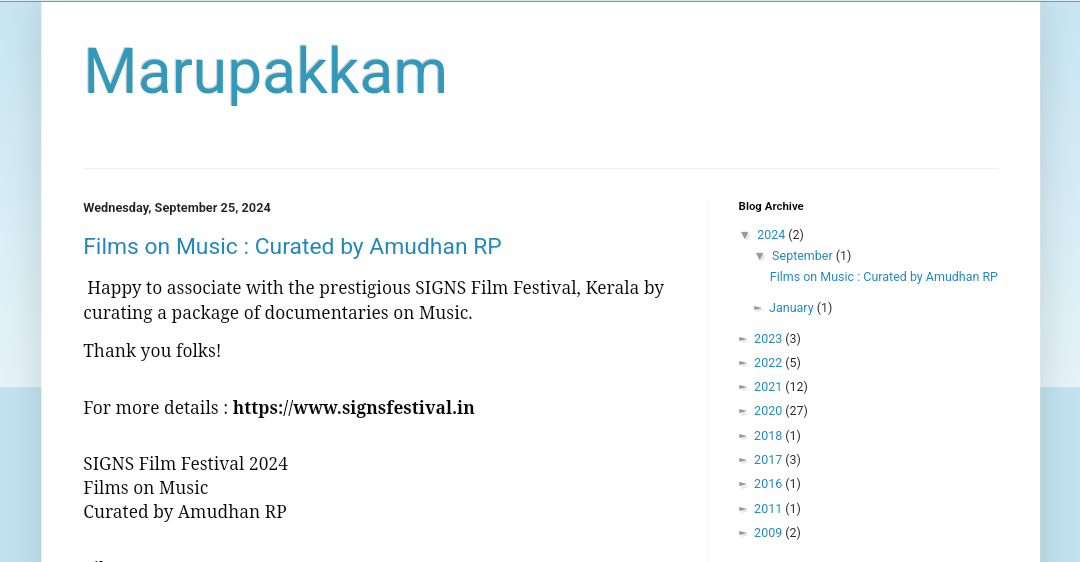
Nasriya: As a prolific documentary creator what advice would you give to emerging filmmakers?
Amudhan: To young and upcoming filmmakers, I say: read widely, travel extensively, and cultivate an open-minded perspective. Listen to diverse voices, even in everyday settings like markets, where numerous perspectives converge. If you don’t have an open mind, you will only hear the voices that confirm your existing views. But with an open mind, you will identify and appreciate the varied voices, even within the same marketplace.
Visit RP Amudhan’s YouTube Channel for more of his works. Click here.


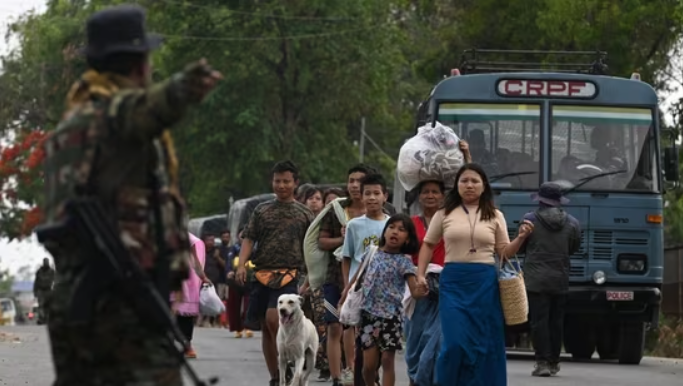
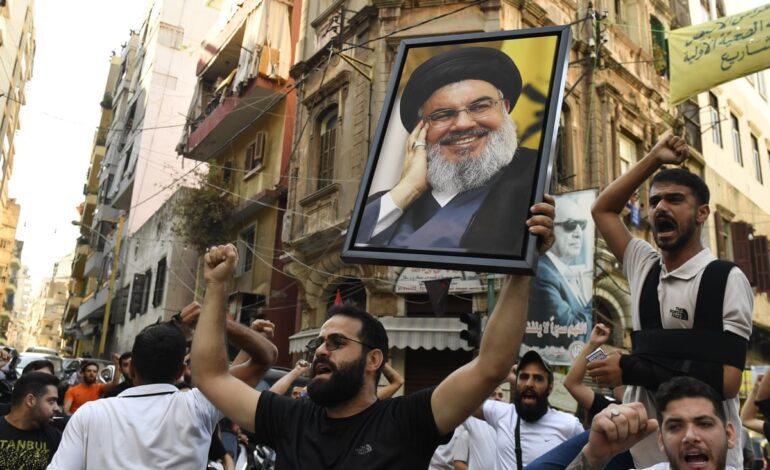
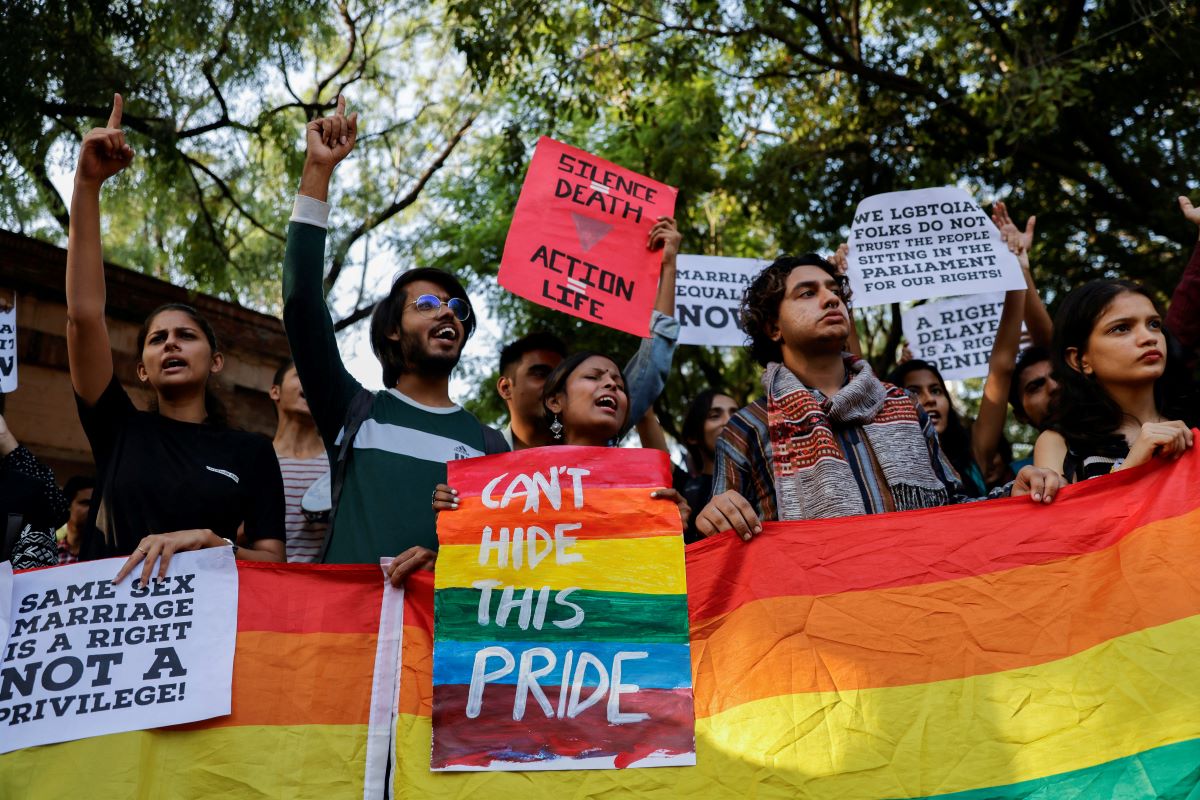
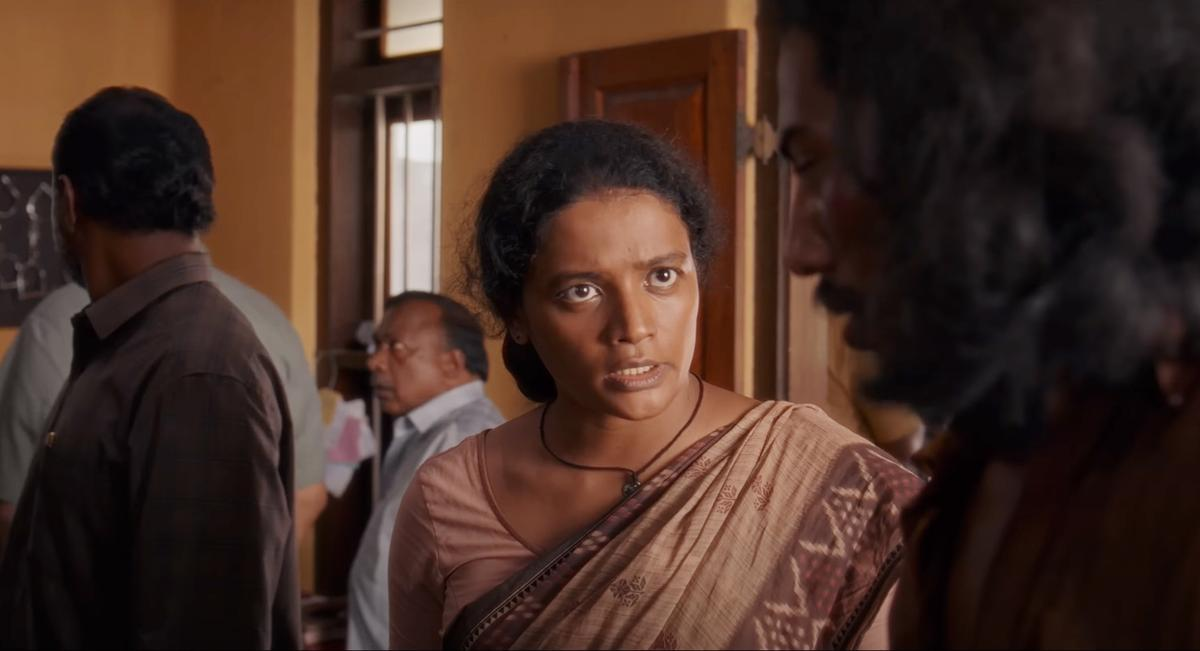

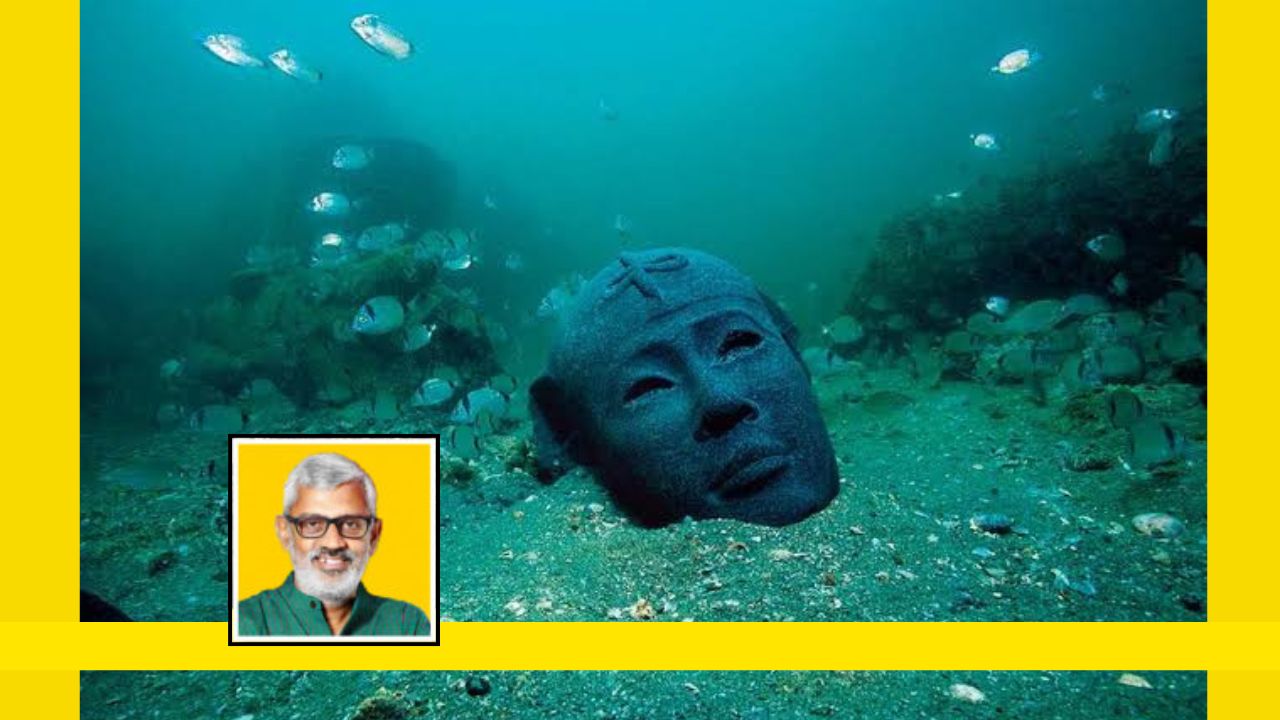
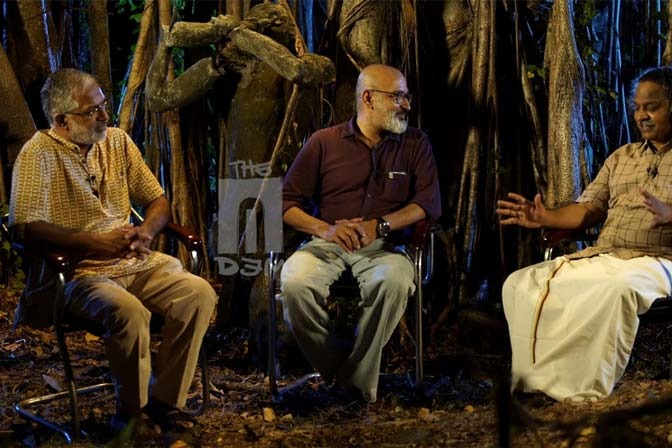
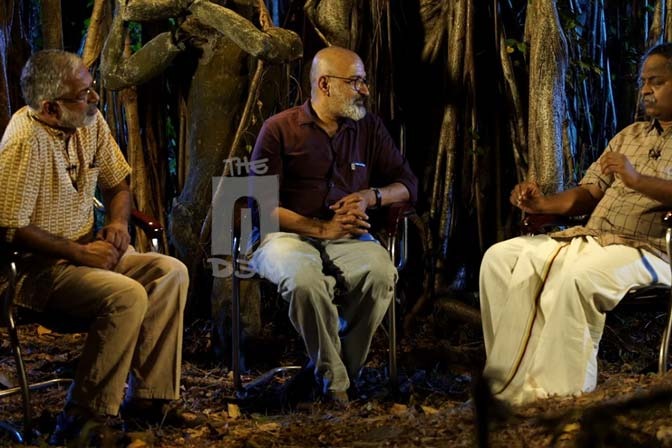


Amudhan’s work deserves a much more elaborate and comprehensive coverage . Hope Aidem will do it .